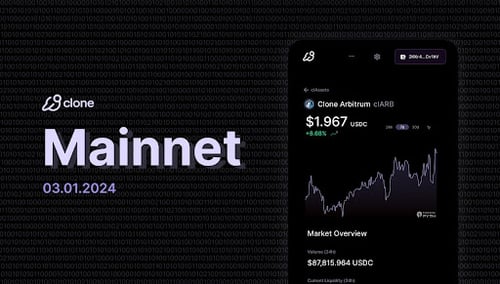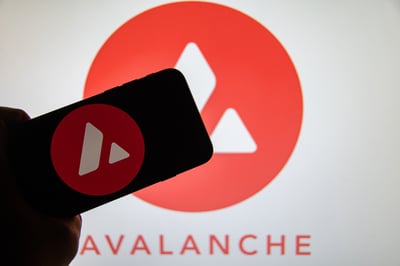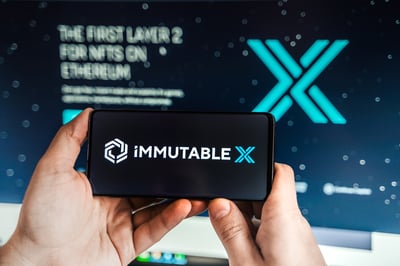Clone, the groundbreaking open-source protocol for trading non-native tokens on the Solana blockchain, announced the public mainnet launch of Clone Markets and Clone Liquidity.
In a press release shared with Cryptowisser, Clone said the launch will take place today, March 1st. The public mainnet launch will also facilitate the introduction of highly liquid markets for non-native assets via Clone's innovative "cloned assets" (clAssets), creating a more seamless, efficient and accessible trading environment for Solana users.
Clone seeks to make it easy for users to trade various non-native tokens on the Solana network and leverage its rapid transaction processing capabilities and low fees. Solana is one of the most active DeFi ecosystems in the crypto space but it lacks a reliable environment for spot trading, especially for non-native tokens based on other blockchains, as users are wary of providing liquidity to bridged asset trading pools.
This is where Clone comes in. The protocol intends to address this challenge by introducing non-native assets to Solana in the shape of its innovative clAssets. clAssets are unique, cloned versions of existing on-chain assets, hosted on the Clone protocol. It is an innovative system for the trading of non-native tokens, where liquidity providers can take advantage of the unprecedented flexibility of Clone’s novel Comet Liquidity System and facilitate the seamless trading of clAssets with deep liquidity and low slippage.
Clone has two user interfaces, Clone Markets and Clone Liquidity. These interfaces serve various purposes within the Clone Protocol. Clone Markets is the decentralized trading arena where users can buy and sell clAssets, while Clone Liquidity enables liquidity providers to access the novel and highly efficient Comet Liquidity System that supports leveraged, cross-margin liquidity pools with only USDC as collateral.
LPs on Clone can provide liquidity to every Clone pool simultaneously. This unique structure, based on the concept of clAssets, makes Clone's liquidity pools at least twice as capital efficient as any AMM competitor.
The public mainnet launch comes after Clone launched its private mainnet product on February 1st. The private mainnet was launched with the first clAssets on Clone -- clARB and clOP -- which made Arbitrum and Optimism’s network tokens available to trade with deep liquidity on Solana for the first time.
In addition to the public mainnet launch today, Clone will also be listing a brand new token, cloned SUI (clSUI). The clSUI pool is the first-ever market that allows Solana users to trade SUI tokens on Solana.
A core feature of Clone is that traders can manage their entire portfolio within a single platform on the Solana blockchain. Thus allowing them to benefit from faster, lower-cost transactions. Meanwhile, liquidity providers will find opportunities to earn substantial yields via Clone.
While commenting on this latest development, Evan Deutsch, Co-Inventor of Clone, said,
"With Clone's mainnet launch on Solana, we're not just enabling trading of non-native tokens; we're envisioning a future where Solana becomes a universal trading platform. Our mission is to make any token tradable without leaving Solana, expanding our community and unlocking the blockchain's true potential."
Clone is harnessing the power of the high-speed, low-cost Solana blockchain to facilitate the trading of hyper-liquid cloned assets, powered by the Comet Liquidity Systems. It's a groundbreaking new protocol that supports the seamless trading of non-native tokens on Solana, through clAssets such as clARB, clOP, and clSUI.
 Nikolas Sargeant
Nikolas Sargeant





